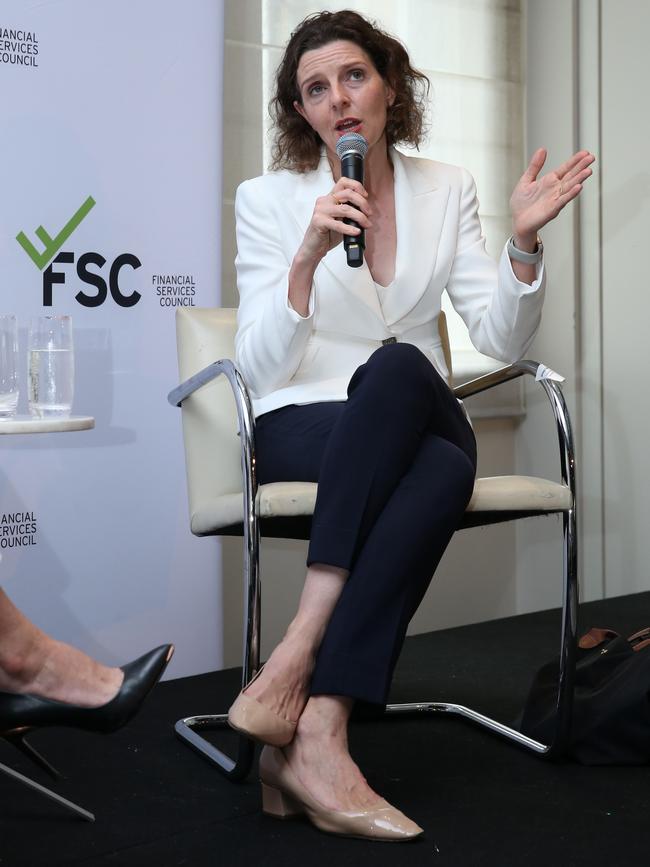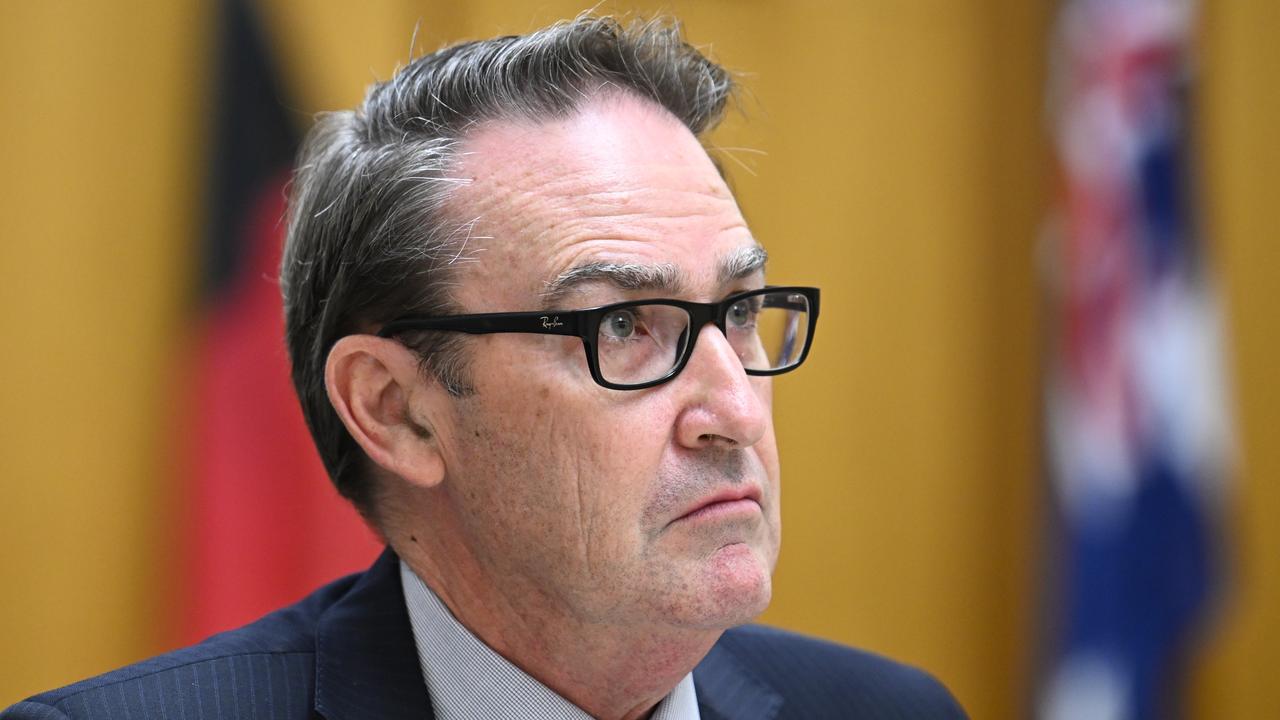GST, tax on super and negative gearing should debated, says independent MP
Increases to the GST, taxes on super and the abolition of negative gearing should be up for discussion, independent MP Allegra Spender says.

Increases in the GST, taxes on superannuation and the potential abolition of negative gearing should be “on the table” for a discussion on tax reform in the next federal parliament, according to the independent member for Wentworth, Allegra Spender.
Speaking at a function in Sydney hosted by the Financial Services Council, Ms Spender, who represents the seat in Sydney’s eastern suburbs once held by former prime minister Malcolm Turnbull, said the tax system had not changed in any significant way since the introduction of the GST in 2000.
She said the system needed to be reformed to reduce the reliance on income tax to help young people, in particular, as they struggled to buy their own home and get ahead.
“We need a process around tax reform,” Ms Spender said.
“I don’t have any particular views on the answers, but I am saying that we need to put [proposals to increase taxes including the GST, superannuation and abolishing negative gearing] on the table and properly consider them. That’s what good policy making is about.”
In a wide-ranging interview, she said she was also concerned at this week’s report by accounting firm Deloitte into payments made by the $94bn construction industry superannuation fund Cbus to the CFMEU.
The report criticised Cbus for not having sufficient processes to ensure that payments of more than $900,000 in the last financial year to the union were in the best financial interests of members, as is required under superannuation legislation.
Ms Spender said people were worried about the reports about the lack of process in Cbus’s payments to the union.
“We have an extraordinary superannuation system, but we do need to have really high standards of governance (in the sector),” she said.
Super funds had “power in the economy which is almost unparalleled”.
Ms Spender was questioned on the details of her recently released green paper on tax reform that was prepared with assistance from former Grattan Institute chief executive, John Daley, and former Treasury Secretary, Ken Henry.
If there was a hung parliament in the next election, she said she would insist on a commitment to consider tax reform as part of her support for a potential government.
Her comments come as eight independent federal members, including Ms Spender, have come together to call on the government to reduce the burden of the Fair Work Act on small business by raising the threshold for defining a small business from a maximum of 15 employees to 25 employees.
They argued that small businesses were already struggling under the burden of higher costs with those with 15 or more staff now faced with the same Fair Work rules as big companies.
The combined approach of the teals could also see a push for a debate on tax reform in the next parliament.
“We haven’t had any major tax reform since the turn of the century when we saw the introduction of the GST,” Ms Spender told the FSC on Thursday.
The GST was introduced at the rate of 10 per cent in July 2000 with successive governments ruling out proposals to increase it.
Ms Spender said she would like to see reforms to the tax system that would set Australia up “for the next generation”.
“We need to lower the taxes when people are working because young people are struggling to get ahead, they are struggling to buy a house, and trying to raise kids,” she said. “They are paying the greatest burden of tax at a time when they have the greatest calls on their finances.
“Those things are very expensive in their late 20s, 30s and 40s when they are paying so much tax.

“We really should be trying to rebalance the tax system.”
Ms Spender’s green paper canvasses a range of options to increase taxes to help pay for a lowering of income tax.
These include increasing the GST, increasing tax on superannuation and reducing tax incentives such as negative gearing for investors to buy houses.
The paper suggests negative gearing on houses could be kept for new houses.
It covers a range of other taxes, including removing the capital gains tax concessions, as well as introducing standard income tax deductions.
She said too many people today were having to have their tax returns done by tax agents, with many turning to them for support at a much higher level than in other countries overseas.
Ms Spender said she did not support the introduction of a tax on carbon. A tax on carbon was introduced by the Gillard government but abolished by the Abbott government.
She said Australia would have been better off had it retained the Gillard tax on carbon, which would have provided more incentive to accelerate the transition away from the nation’s dependence on fossil fuel.
“It would have been a cheaper (energy) transition, and we would be in a much better position now. But it would be too hard to wind everything back and introduce a tax on carbon because you would have to wind back things like the safeguards mechanism,” she said.
Ms Spender said she also supported reducing fuel tax concessions to raise revenue and discourage the production of greenhouse gases.
Her tax green paper, and the potential for a coalition of teals and independents in both houses of parliament to work together on tax reform in a potential minority government, signals increasing momentum for a debate on tax reform after the next election.
Ms Spender opposed the government’s proposed increase in the tax rate on super funds worth more than $3m in parliament this year. She said she had been opposed to the tax because it would have been levied on unrealised gains and not actual profits made in the fund.
“Tax on unrealised gains is bad policy,” she said.
But she did not rule out supporting higher taxes on superannuation, which is also flagged in the green paper.
Ms Spender said was not supporting any specific tax increase measures as she wanted them discussed as part of a broader debate on tax reform.
She said any discussion on tax reform should involve consultation with the community and should not just be a report into tax reform like the Henry Tax review in 2010 that did not involve community consultation.




To join the conversation, please log in. Don't have an account? Register
Join the conversation, you are commenting as Logout